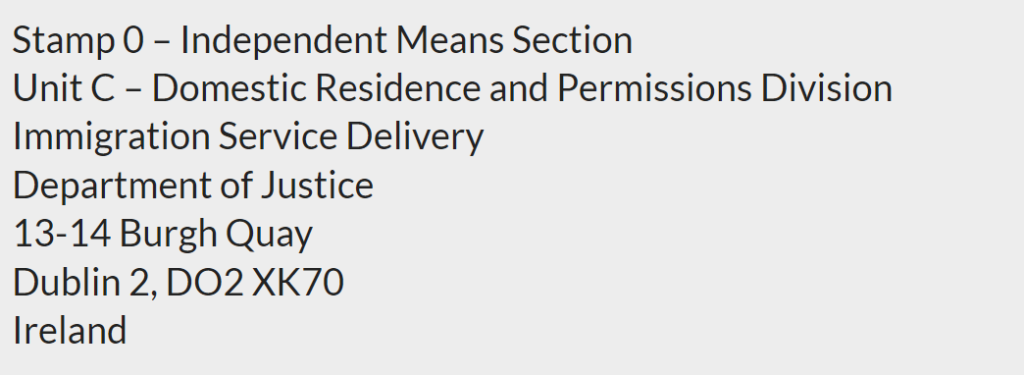Irish Independent Means Visa: A Comprehensive Guide
What is Passive Income Visa?
Passive Income Visa refers to a visa system where applicants can obtain long-term residency in a destination country based on a certain amount of income/savings without the need to invest or work.
Generally speaking, passive income visa programs in various countries have the following characteristics:
1. Strict limitations on the source of income: The applicant’s income needs to be completely passive, such as interest from savings, financial trusts, pensions, or at least non-wage income like investment returns, dividends, and distributions.
2. Visa holders cannot utilize local resources: In theory, you can only consume in the destination country and cannot seek employment locally. You also need to purchase your own health insurance and cannot use free welfare resources such as medical services.
3. Potential for eventual immigration: Almost all countries with passive income visa programs allow participants to apply for permanent residency or citizenship after legally residing there for a certain period.
If you are interested in a passive income visa, you can read another guide on the website: “Global Passive Income Visas | An Incomplete Handbook”.
Irish Independent Means Visa: An Overview
In Ireland’s visa system, the independent means visa under the Stamp 0 category (Persons of Independent Means) is Ireland’s version of a passive income visa. It is issued to non-EU retirees or individuals with economic or familial ties to Ireland (such as overseas relatives of Irish residents, professors invited by Irish universities, etc.). This visa requires applicants to have an independent income of €50,000 per year, without relying on others.
Similar to other such programs, holders of the independent means visa cannot work or engage in commercial activities in Ireland. Additionally, when submitting the application, you must prove to the Irish Immigration Service that you have sufficient savings to cover any unexpected living expenses. The specific amount for this financial guarantee is generally equivalent to the price of a residence in Ireland (around €320,000, but the exact amount needs to be confirmed with the Irish immigration authorities in real-time).

Irish Independent Means Visa: Application Process
The application process for the Irish Independent Means Visa can be broadly divided into three steps:
1. Stamp 0 Application:
In this step, you need to prepare all the required documents, fill out a Stamp 0 application form, and mail all necessary documents to the Irish Immigration Office in Dublin.
Theoretically, the Irish Independent Means Visa can be applied for personally. However, due to the complexity of the required documents, you generally need the assistance of a local lawyer. Specifically, the lawyer can mail the application materials on your behalf.
If you are applying by yourself, the address for the Irish Immigration Office is shown in the image below.

Required documents for this process include:
- Applicant’s Identity Documents: These include the applicant’s valid passport, passport-sized photos, birth certificate, marriage certificate, and other relevant documents.
- Application Form: You need to fill out an application form online and write a letter explaining the reasons for applying for the visa.
- Income Proof: You need to prove that your income meets the required amount. Your income proof must accurately show your monthly income and expenses for the past six months and must be verified by a qualified Irish accounting firm.
- Financial Proof: You need to prove that you have emergency savings that can cover all unexpected living expenses in addition to your income.
- Proof of Connection with Ireland: If you are applying for the Independent Means Visa because you have relatives in Ireland, you need to provide all detailed information about this relative. If you have any economic or other ties with Ireland, you also need to explain this to the Immigration Office.
- Proof of Health Insurance Purchase: You need to purchase valid health insurance in Ireland for yourself every year.
- No Criminal Record Proof: You need to provide a certificate of no criminal record issued by the law enforcement agency in your current place of residence.
- Medical Examination Certificate:
All non-English documents must be translated into English, and all documents outside Ireland must be notarized.
If your application is approved, you will receive a Conditional Letter of Offer and an Agreement Form from the Irish Immigration Office, at which point you can proceed to the next step of applying for an Irish residence visa.
2. Applying for a Class D Residence Visa:
After receiving the Conditional Letter of Offer, if you are not from a country that allows visa-free entry to Ireland, you must apply for a Class D residence visa at an Irish embassy or consulate abroad or a domestic visa office, using your personal basic information and the Conditional Letter of Offer.
The Independent Means Visa is not an entry visa. The purpose of the Class D visa is to help you obtain an entry visa that allows you to freely enter Ireland.
3. Entering Ireland:
Once your residence visa application is approved, you can enter Ireland and live freely there.
It is important to remember that after entering Ireland, you need to mail your passport to the Irish Immigration Office for registration and stamping, completing the final step of the application process.
The entire processing time for the Irish Independent Means Visa takes about four months.
Minimum Residency Requirement:
The Irish Independent Means Visa does not have any minimum residency requirements; theoretically, you can hold the visa without entering the country.
Visa Duration & Dependents:
The Irish Independent Means Visa is valid for one year and can be continuously renewed under the same conditions. However, visa holders cannot use this visa to apply for permanent residency or citizenship in Ireland.
Additionally, holders of the Independent Means Visa cannot bring dependents into Ireland.
Official Links:
Irish Independent Means Visa: https://www.irishimmigration.ie/coming-to-live-in-ireland/i-want-to-retire-to-ireland/